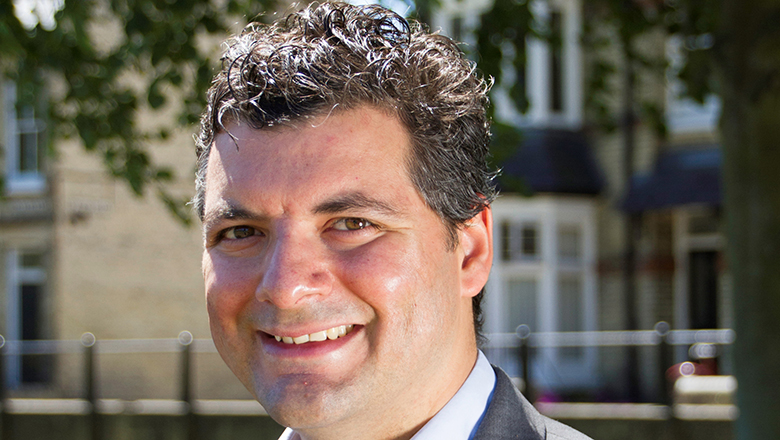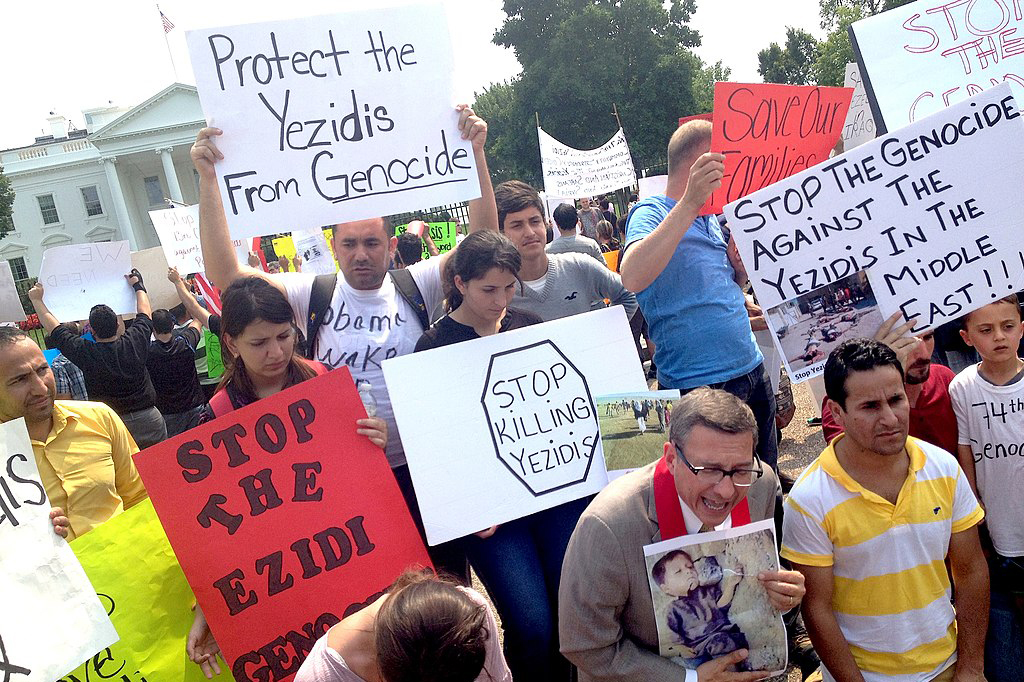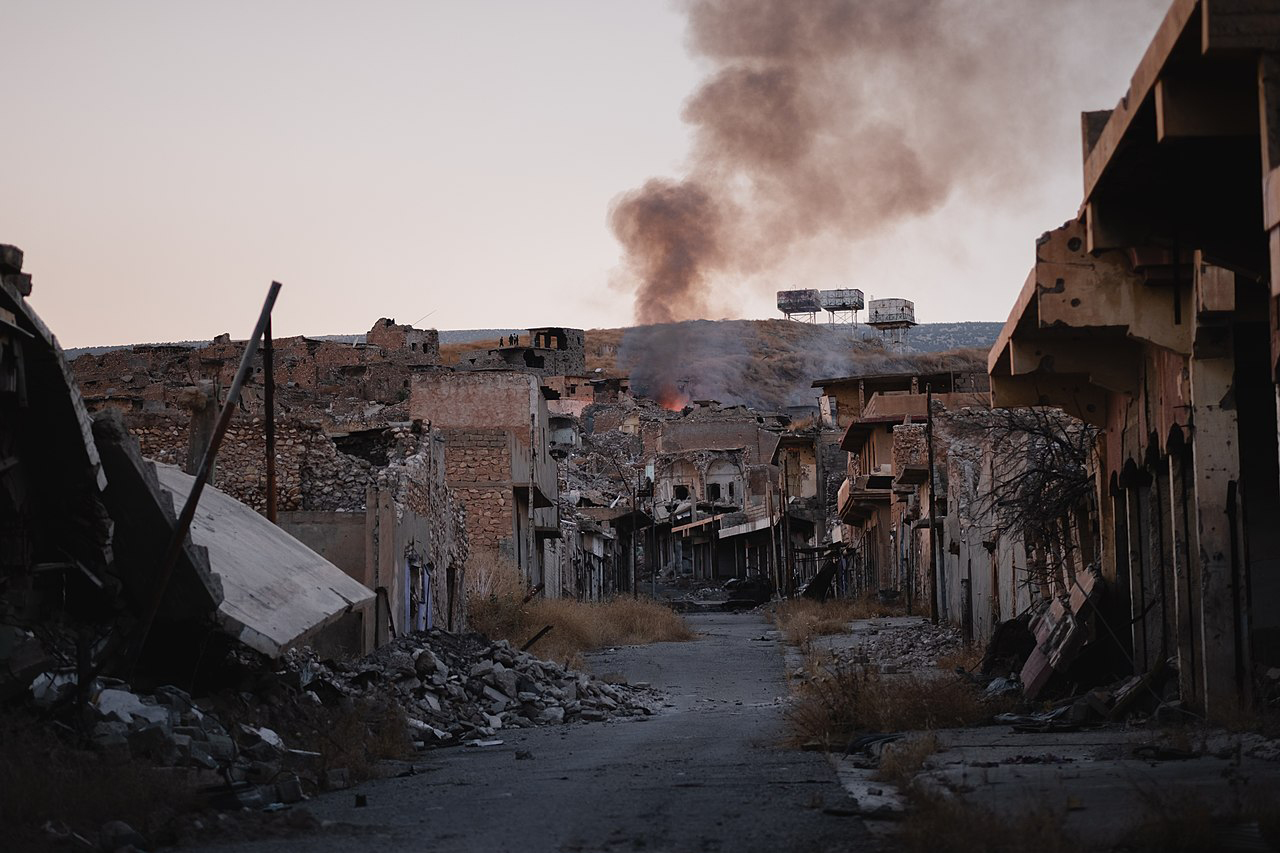The City Law School’s Dr Aldo Zammit Borda says states such as the United Kingdom, should consider broadening the scope of their universal jurisdiction provisions.
By City Press Office (City Press Office), Published
By Dr Aldo Zammit Borda, Reader in Law at The City Law School
(Republished from EJIL: Talk!, the Blog of the European Journal of International Law)
Yazidi tradition recounts that, before the Daesh attack in 2014, the Yazidis had suffered seventy-two large-scale persecutions in their history. To a large extent, in the past, they faced these attacks alone, with little hope of external support. But given that the 2014 genocide took place in the age of international justice – the age of the Rome Statute – will things be any different this time round?
 The word “genocide” has different legal and sociological meanings. It carries a moral and social stigma and is often deployed by various advocacy groups to draw attention to their plight.
The word “genocide” has different legal and sociological meanings. It carries a moral and social stigma and is often deployed by various advocacy groups to draw attention to their plight.
However, in the case of the Yazidis, the characterisation of “genocide” – in its narrow, legal sense – is correct. In January 2023, the German Federal Court of Justice confirmed the first-ever conviction of a Daesh fighter for genocide against the Yazidis. And in his final briefing to the United Nations Security Council, Karim Khan KC, the former Special Adviser of the UN Investigative Team to Promote Accountability for Crimes Committed by Da’esh/Islamic State in Iraq and the Levant (UNITAD), stated:
“I can confirm to the Council that based on our independent criminal investigations, UNITAD has established clear and convincing evidence that genocide was committed by ISIL against the Yazidi as a religious group”.
The question is, therefore, not whether this is genocide, but whether there is the political will to confront it. Since the genocide against the Yazidis began in August 2014, there has been some limited progress on justice and accountability, with two convictions of Daesh fighters for genocide in Germany and prosecutions for international crimes on the basis of universal jurisdiction in some other countries. But nine years on, justice for the Yazidis has remained elusive. This case, therefore, presents a real litmus test for the legitimacy and effectiveness of international justice mechanisms.
If justice doesn’t take place in Iraq, then where?
On 6th March 2023, the International Bar Association Human Rights Initiative (IBAHRI) and City, University of London, together with a number of Yazidi and justice-focused organisations (including Yazda, the Free Yazidi Foundation and Coalition for Genocide Response) organised a side event to the UN Human Rights Council to draw attention to the need for sustained work towards justice for the Yazidis. The event was co-sponsored by seven States, showing continued concern for this subject: Armenia, Canada, Germany, Luxembourg, the Netherlands, Poland and the United States.
While delegates praised the work of states to promote accountability for Daesh fighters using universal jurisdiction, the main impediment to comprehensive justice for the Yazidi genocide remained the lack of an appropriate legal framework and mechanism to prosecute genocide and other international crimes in Iraq. Such a law existed for crimes committed in the Saddam Hussein era, but its temporal application is limited to crimes committed between 1968 and 2003. And even though there reportedly have been multiple draft laws on international crimes in the pipeline, none have so far seen the light of day, nor is there any clear timeline in place.

As such, one delegate at the above-mentioned event noted: “without the passing of such a law, the evidence currently collected cannot be actioned in Iraq.” She asked: “if justice doesn’t take place in Iraq, then where?” In fairness, Iraq has taken some positive steps towards promoting broader justice. For instance, in 2021, the Iraqi Council of Representatives adopted the Yazidi [Female] Survivor Law, which aims to provide reparations to survivors of the Daesh atrocities and expressly recognises the Yazidi genocide. As things stand, however, Daesh fighters cannot be prosecuted in Iraq for genocide or other international crimes. They are instead being prosecuted under anti-terrorism laws.
Do terrorism-related trials provide a suitable alternative?
From January 2018 to October 2019, the Iraqi judiciary processed over 20,000 terrorism-related cases of Daesh fighters, with thousands pending (as of January 2020). Prosecutions under anti-terrorism laws are favoured by Iraqi officials because they are fast, often focusing on “association with” or “membership” in a terrorist organisation and usually requiring little evidence of other crimes. Moreover, under these laws, the death penalty is mandatory for a wide range of acts that do not meet the “most serious crimes” threshold.
Putting aside fair trial considerations around these trials, however, prosecuting Daesh fighters for terror-related offences only means that victims and survivors are not involved in such trials. This means that their voices and stories are not heard, which affects their personal journeys towards justice and the process of documenting historic events. This is particularly acute with respect to the many instances of sexual and reproductive violence suffered by Yazidi women and girls, which do not get recorded. Moreover, one of the main objectives of domestic prosecutions of international crimes is to help restore public confidence in the national institutions that failed citizens. However, far from restoring such confidence, by focusing only on anti-terrorism, Iraq seems to be placing its own national security interests (vis-à-vis terrorism) over and above the genocide, and the ensuing sense of impunity for genocide, faced by its citizens.
What about state responsibility for genocide?
While discussions about justice for the Yazidis have usually revolved around individual criminal responsibility of Daesh fighters, an important element that should not be forgotten is state responsibility for failure to prevent and/or punish genocide under the Genocide Convention. In 2022, a team of international lawyers and academics published a report entitled: “State Responsibility and the Genocide of the Yazidis” (YJC report), which provides significant, prima facie evidence that three States (Syria, Iraq and Turkey) have allegedly failed (and continue to fail) in their obligations to prevent and punish genocide.
In this context, on 23 January 2023, the Parliamentary Assembly of the Council of Europe adopted a resolution on “Addressing the issue of Daesh foreign fighters and their families returning from Syria and other countries to the member states of the Council of Europe,” which amongst others calls on member states to:
“consider bringing before the International Court of Justice, proceedings against States which allegedly failed to prevent and punish acts of genocide committed by Daesh, in order to hold those States to account under the Genocide Convention.”

While it is clear that it was Daesh fighters who committed genocide against the Yazidis and who should bear the greatest responsibility for this genocide, as we know, genocides are rarely instantaneous. They occur in stages that, with appropriate and timely state intervention, may be reversible. Gregory Stanton referred to ten stages. And the UN Framework of Analysis for Atrocity Crimes highlights various common and specific risk factors which may, with state intervention, be prevented (or at least delayed) from escalating. However, the YJC report found that, in the case of the Yazidis, not only did states take very limited action to prevent genocide, but the evidence supports the prima facie conclusion that some states, directly and indirectly, provided aid or assistance to Daesh and to individuals affiliated with Daesh.
Moreover, action in state responsibility for genocide is also necessary to address the continuing violations of the Genocide Convention by states, including Iraq and Syria, who are not only failing to punish genocide but have not even enacted the requisite domestic legal framework to do so (a breach of Article V of the Genocide Convention). Such action may serve, at the very least, to pile international pressure on these states to enact the necessary legislation and punish genocide.
Conclusion
With Daesh largely defeated, the international community may understandably wish to draw a line under that tragic chapter and focus on more contemporary issues. However, for the Yazidis, the genocide is continuing. 2,760 Yazidi women and children remain missing, with attempts to save them becoming less frequent. A large number of Yazidis (over 200,000) continue to live in internally displaced persons camps and are unable to return to their homelands because of ongoing fighting and insecurity in the region. Moreover, the genocide remains unpunished in Iraq and Syria, giving rise to continued violations of the Genocide Convention.
There is, therefore, a need for a comprehensive, multi-level approach to accountability for Daesh atrocities against the Yazidis. States should continue collaborating with mechanisms such as UNITAD and the Joint Investigation Team (JIT), created by France and Sweden, to gather and share evidence to support prosecutions under universal jurisdiction. Moreover, states such as the United Kingdom, should consider broadening the scope of their universal jurisdiction provisions.
Currently, the courts of England and Wales can only exercise jurisdiction over the offences of genocide, crimes against humanity and war crimes committed abroad by any person who: (i) is/was a UK national or UK resident at the time of the crime; or (ii) became a UK national or UK resident after the crime and still resides in the UK when proceedings are brought. In addition, the consent of the Attorney General is required to institute proceedings for such crimes. As things stand, therefore, the scope of universal jurisdiction in the UK is limited, reducing its ability to prosecute génocidaires.
The international community, moreover, needs to continue supporting and pressuring Iraq, as well as Syria, to enact appropriate domestic legislation to criminalise genocide (and other international crimes) as a matter of urgency. To date, Iraq has prevaricated on this issue. In so doing, it has continued to breach its legal obligations under the Genocide Convention to punish genocide (Article I) and to provide effective penalties for persons guilty of genocide (Article V).
Furthermore, states should seriously consider following in the footsteps of The Gambia v Myanmar and institute proceedings in state responsibility for genocide against one or more of the states identified in the YJC report before the ICJ. This report contains an extensive compilation of prima facie evidence of state violations of the Genocide Convention and, as such, may be used to facilitate any such ICJ submission.
In the final analysis, if the mechanisms of international justice are not able to mobilize with respect to the clear-cut case of the Yazidis, not only will we be failing them in this hour of critical need, but our international justice mechanisms will emerge severely undermined. The call here is not for some extraordinary measures, but simply for states to comply with the Genocide Convention and, as necessary, to take action to rectify any ongoing violations.
